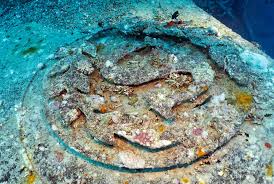BREAKING NEWS: A deep-sea exploration submersible

CHARLESTON, SC – The U.S. Coast Guard Marine Board of Investigation (MBI) has released its highly anticipated and conclusive final report into the catastrophic implosion of the Titan submersible in June 2023, which killed all five occupants during a voyage to the Titanic wreckage. The report delivers a damning indictment of the sub’s operator, OceanGate Expeditions, citing a systemic failure to adhere to established safety protocols and the “gross negligence” of its late CEO, Stockton Rush, as the primary causal factor in the tragedy.

The investigation, which spanned nearly two years, concluded that the experimental carbon-fiber hull lacked the necessary structural integrity for deep-sea pressures, a flaw that was exacerbated by a hostile corporate culture where safety warnings were routinely ignored or dismissed. Key findings include documented instances where Rush continued to operate the sub despite clear evidence of hull damage from prior dives. Experts state the report’s conclusions are a major turning point, likely leading to new, stringent international regulations governing the burgeoning sector of private deep-sea exploration and tourism.

While this report closes the book on the Titan disaster, the industry continues to evolve with a strong push for certified scientific exploration. Just months before this report, the U.S.’s legendary deep-sea submersible, DSV Alvin, completed a major refit, allowing it to now access an unprecedented 99% of the global ocean floor. China also recently announced a series of record-breaking dives with its Jiaolong submersible in the Arctic. The future of deep-sea exploration is now a two-fold story: a sober reckoning with the risks of uncertified ventures, and a renewed commitment to responsible, regulated science at the ocean’s greatest depths.












